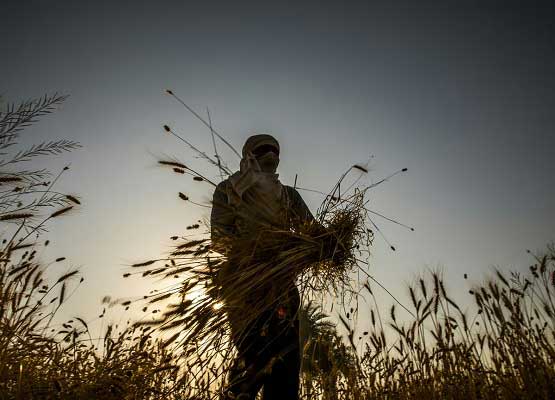What Is The ‘Farm Sector Bill’ That Passed In LS, Why Is It Being Opposed?

New Delhi : The Agricultural Reforms Bill was passed in the Lok Sabha on Thursday. Prime Minister Narendra Modi made it clear in the midst of an uproar over the three major bills related to agriculture that the MSP (minimum support price) and government procurement system will remain. The farmers will benefit from the bills.
What are these bills
The Farmers Produce Trade and Commerce (Promotion and Facilitation) Bill, 2020 provides for the creation of an ecosystem. This includes facilitating farmer-selective selection by purchasing and selling farmers’ produce at profitable prices through transparent and uninterrupted competitive alternative trade channels outside the physical complexes or equine markets of markets notified under various state agricultural produce marketing legislation.
At the same time, the Farmers (Empowerment and Protection) Price Assurance Contracts and Agricultural Services Bill, 2020 provides for a national framework on agricultural agreements that provide farmers with agricultural trade firms, processors, wholesalers, exporters or large retailers for agricultural services and provides a mutually agreed profitable price structure in a fair and transparent manner.
What is in the bill
1. Agricultural Produce Trade and Commerce (Promotion and Facilitation) Bill :
You can sell the produce anywhere. You will get better prices. There will be online sales.
2. Farmer (Empowerment and Protection) Agreement on Price Assurance and Agricultural Services :
Farmers’ income will increase. Middlemen will end. The supply chain will be ready.
3. Essential Items (Amendment):
Cereals, pulses, edible oils, potatoes and onions will no longer be compulsory items. They will be stored. Foreign investment in agriculture will be attracted.
Protests since the time of ordinanceThe Modi government at the Center, which brought the bill in Parliament on the ordinance related to agriculture, received a setback from the opposition as well as from the party leaders. Terming the bill as anti-farmer, Union Minister and Shiromani Akali Dal MP Harsimrat Kaur Badal resigned from the Modi cabinet on Thursday night. However, the Agricultural Produce Trade and Commerce, Promotion and Facilitation Bill-2020 in Lok Sabha; The Agreement on Farmer Empowerment and Protection, Price Assurance Agreement and Agricultural Services Bill-2020 was passed after five and a half hours of discussion. During this time the opposition walked out. At the same time, the Essential Commodities (Amendment) Bill related to it has passed only on Tuesday.
BJP’s ally Shiromani Akali Dal has been opposing it since the ordinance. When the bill was introduced in the Lok Sabha on Thursday, Akali Dal MP Sukhbir Singh Badal protested that Harsimrat Kaur Badal would resign from the post of minister. Harsimrat is the Union Food and Processing Industries Minister. The Akali Dal is part of the BJP-led NDA.
Sukhbir said during the discussion that she has told the government the sentiment of farmers. She tried to allay the fears of the farmers, but this did not happen. She said that successive governments in Punjab worked hard to prepare agricultural infrastructure but this ordinance would ruin their 50 years of hard work.
During the discussion, the Congress and other opposition parties opposed the bill. They argued that this law would weaken the protection shield provided to farmers by the MSP system. It will give big companies a chance to exploit farmers.
Agriculture and Farmers Welfare Minister Narendra Singh Tomar dismissed the opposition’s allegations and said that all three bills related to farmers will prove to be revolutionary. This will ensure remunerative prices to the farmers for their produce. This bill does not supersede the laws of the state.
Why is this bill opposed –
1. If the mandis are finished then the farmers will not get the MSP i.e. minimum support price. There should be One Nation One MSP in the country.
2. There is no mechanism to fix prices. There are fears that this will give private companies a means of exploitation of farmers. The farmer will become a laborer.
3. Businessmen will hoard. This will cause price volatility. Food security will end. This can increase the black marketing of essential commodities.










